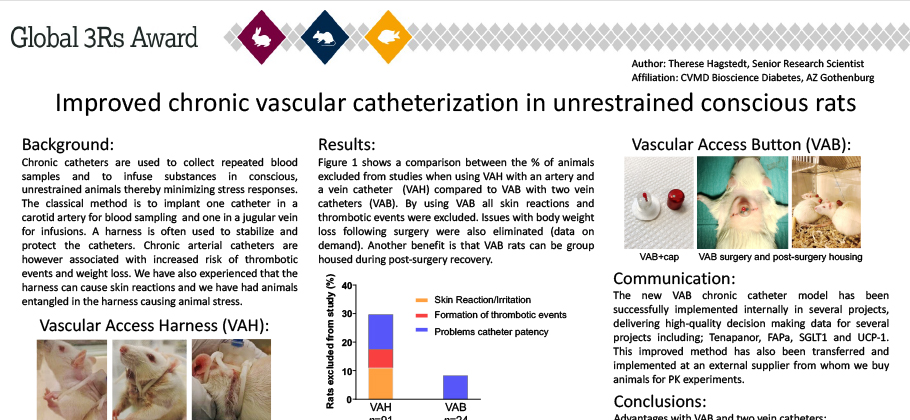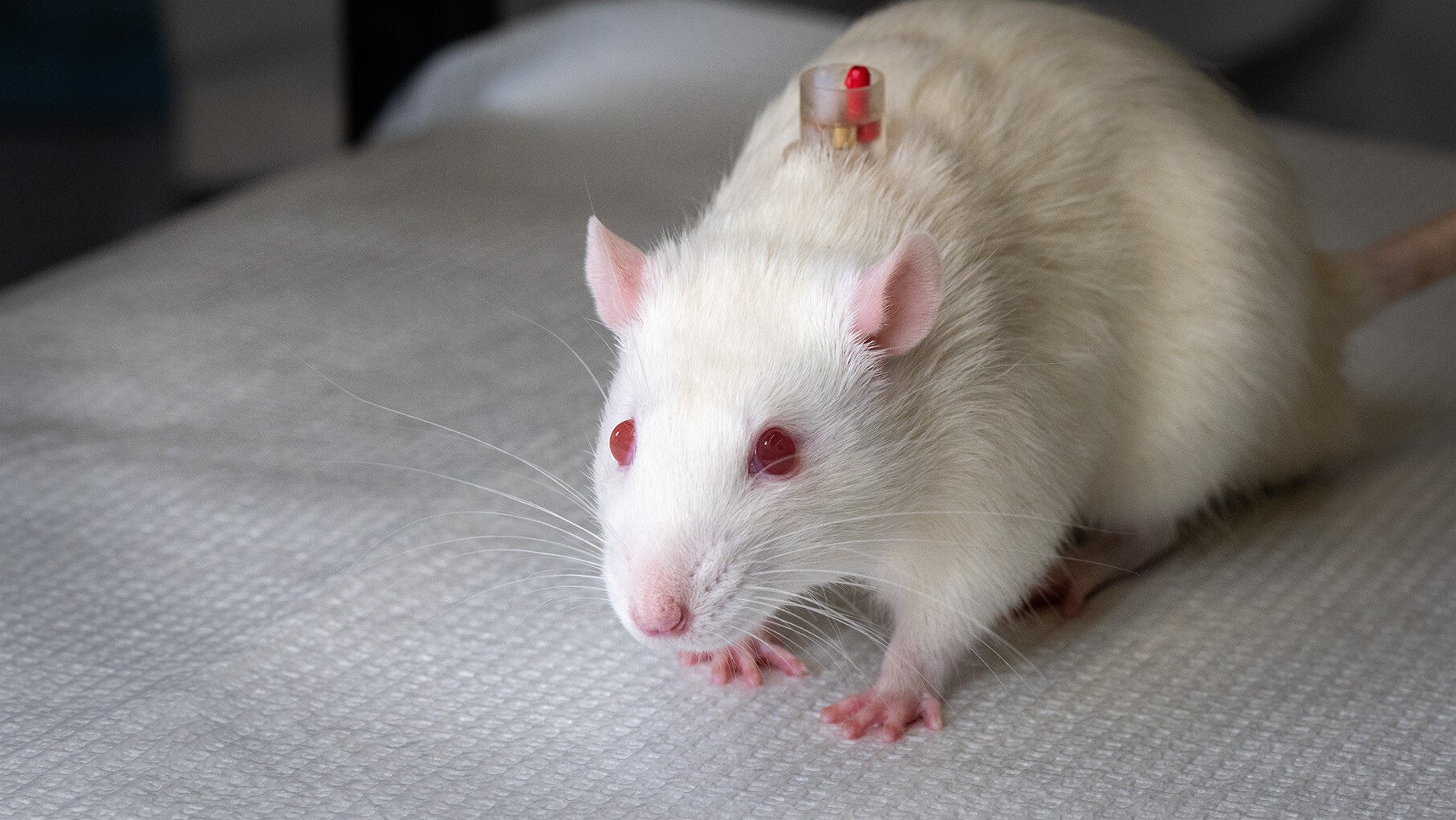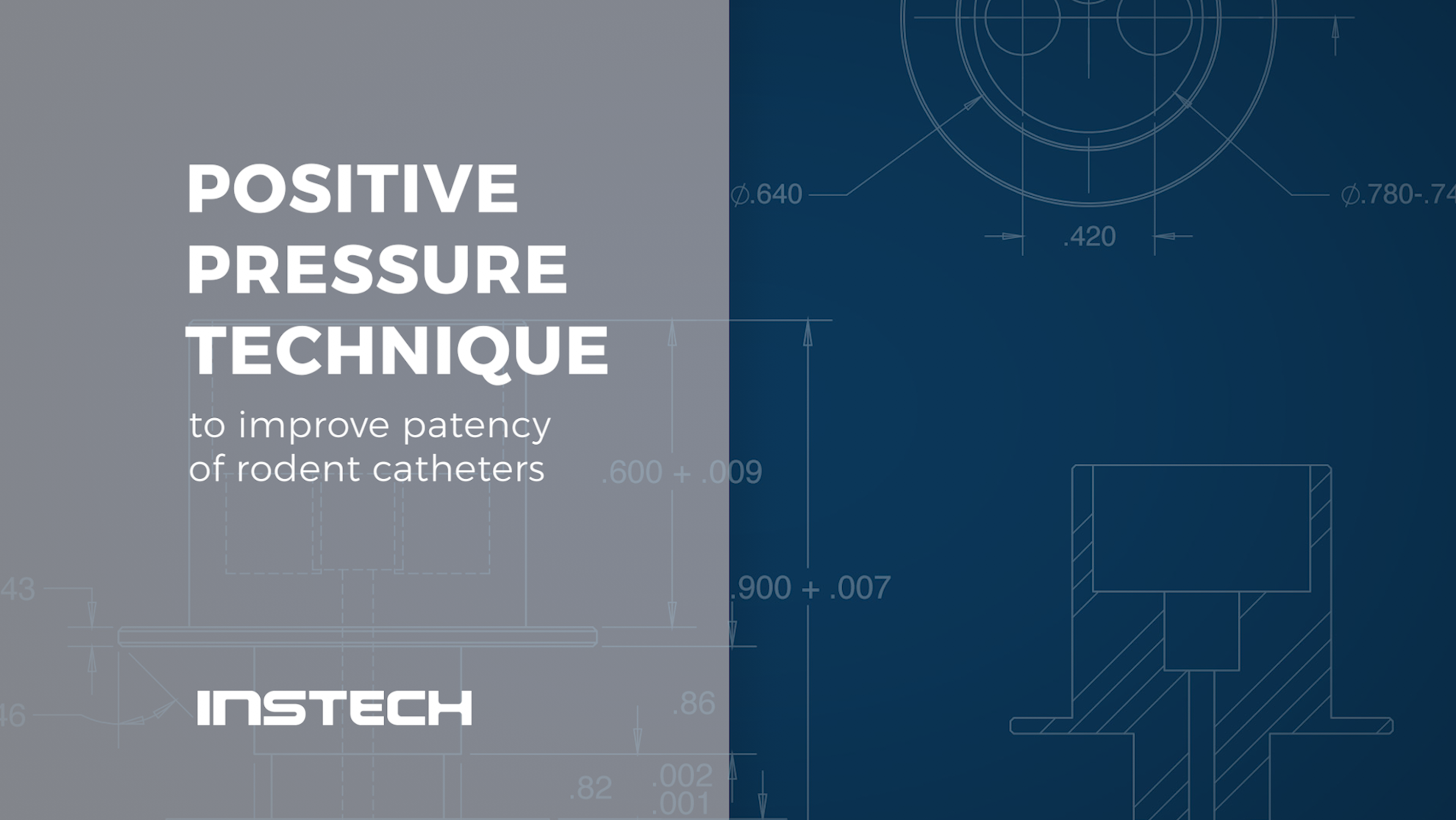Therese Hagstadt, a researcher at AstraZeneca in Sweden, has submitted her research for the company's Global 3Rs Award for improving a model of chronically catheterized rats for infusion and blood sampling. By switching the access point from an external harness to a transcutaneous skin button with a port (the Instech Vascular Access Button™), while also changing one of the catheters’ placement from the carotid artery to the femoral vein, she was able to increase percentage of catheterized animals that were able to be used on study from 70% to 92%.
This result is similar to the data reported by Dawn Bellinger of Ferring Pharmaceuticals at AALAS in 2015. See Poster



